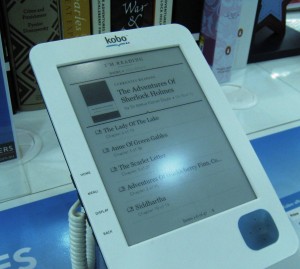
Australian independent booksellers are powerless to join the e-book revolution, according to Gleebooks co-owner David Gaunt.
Booksellers are becoming increasingly frustrated by their inability to enter the e-book market because there is no affordable internet “cloud” available for them to sell from.
“It sounds a bit weak [not] to say we should just be dynamic and act without that, but we actually don’t have a mechanism to do that. Booksellers deal with finished products,” Gaunt said.
“All we’re going to be in the business of doing is offering [e-book] content … [but] we’ve yet to establish the place where they keep the digitally managed rights content. There’s no cloud yet.”
Hopes that the Australian Publishers Association would provide such a place were disappointed in August when the APA announced it would not be going through with former plans to use its online information system TitlePage as an e-book platform for Australian booksellers.
Academic and Digital Publishing Director at Allen & Unwin Elizabeth Weiss said the TitlePage plans were never “set in concrete”.

“In an industry you investigate a whole range of possible things and possible ideas and it didn’t look like it was going to work out,” Weiss said.
APA’s announcement heightens industry apprehensions about the survival of physical booksellers in the digital era.
For Gaunt, the future looks grim even with the help of e-books, because they are generally expected to cost less than print or “p-books”.
“I think it’s replacement business, not add-on business. And if it’s replacement business it’s profit-destroying business,” Gaunt said.

“I’ve been in this industry more than 30 years; it operates on quite narrow margins.
“[If] 20 per cent of [our business] changes from being ‘p’ to ‘e’, then of that 20% we’ll be selling the [e-books] at less than half the price we sell the books for, and we will get about half of the margin that we currently get.
“Ergo, I’ve lost 5 per cent of my profit. And if I lose 5 per cent of my profit, at the current trading conditions, we close.”
Wall Street Journal commentators agree booksellers are a dying breed:
REDgroup Retail, owner of the Borders and Angus & Robertson chains, is already reportedly feeling the pinch, although it’s unclear how much of this is due to e-books.
REDgroup has been selling Kobo-powered e-books since May.

Adjunct Associate Professor at the University of Queensland Peter Donoughue said he could “understand” publishers’ reluctance to spend the money on an e-book platform for other booksellers when Google was “just around the corner”.
Gleebooks’ David Gaunt said it came down to profitability.
“[W]e’re a small country. Either somebody has to see a way of making money out of this, or whatever it is that needs to get built won’t get built,” he said.

Pingback: college bookstores
Pingback: Deliciously Fictitious - for voracious consumers of literature